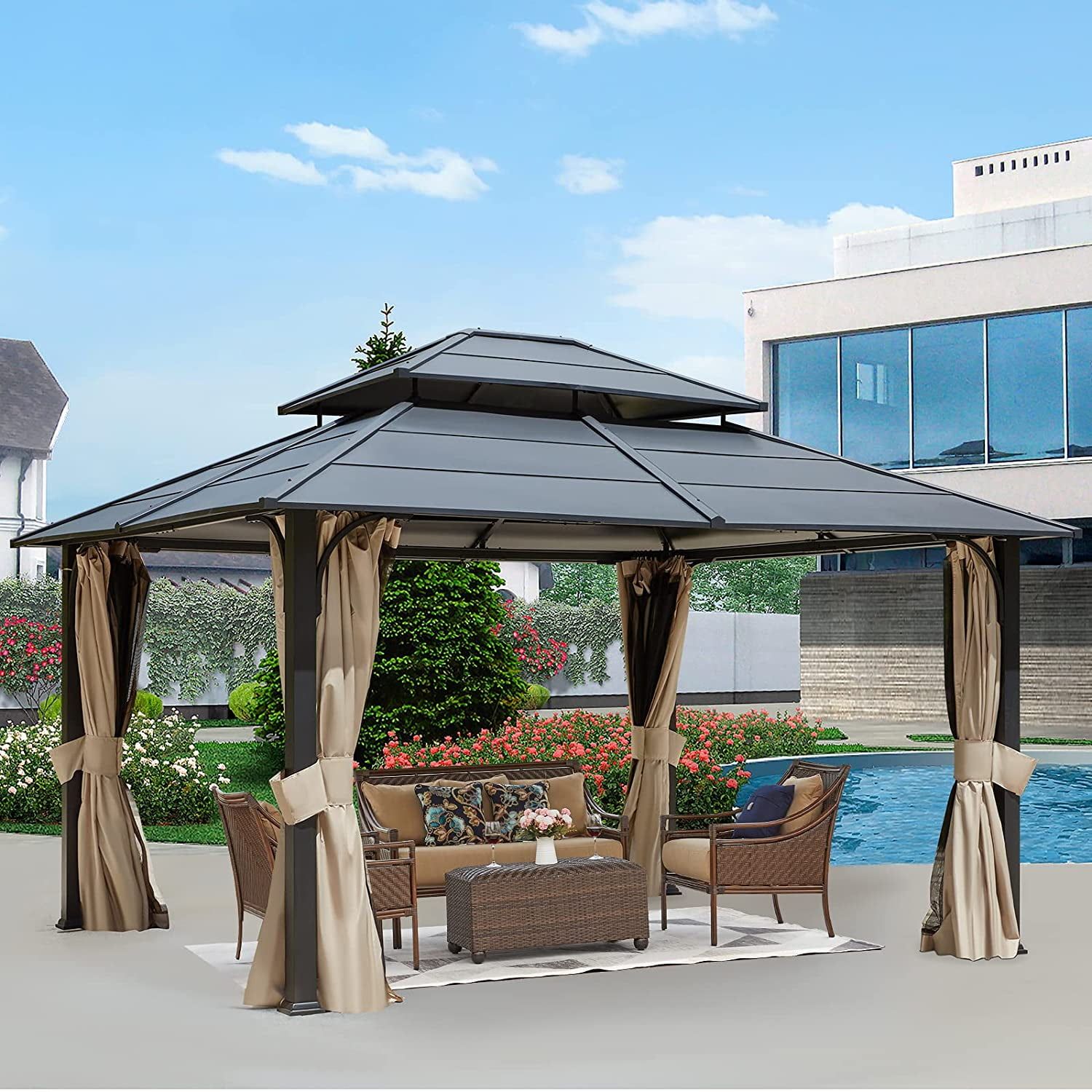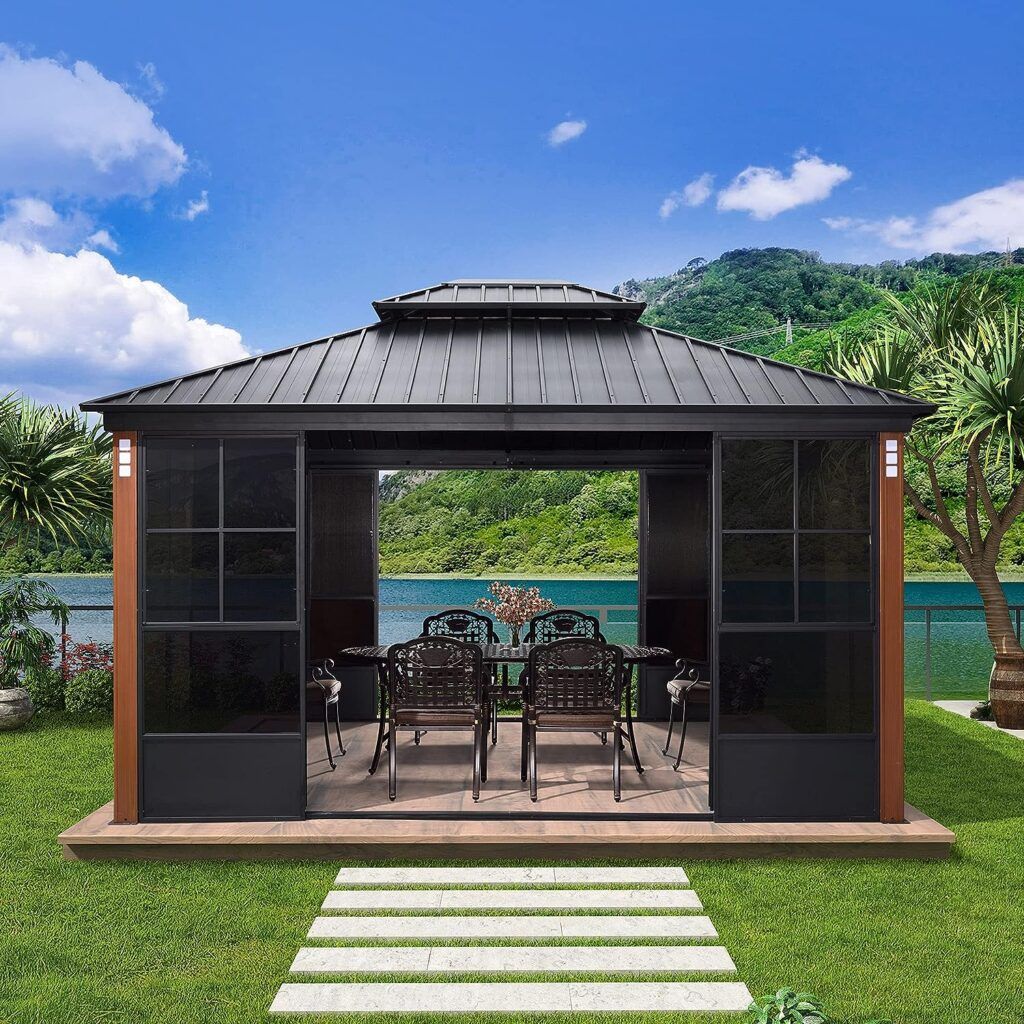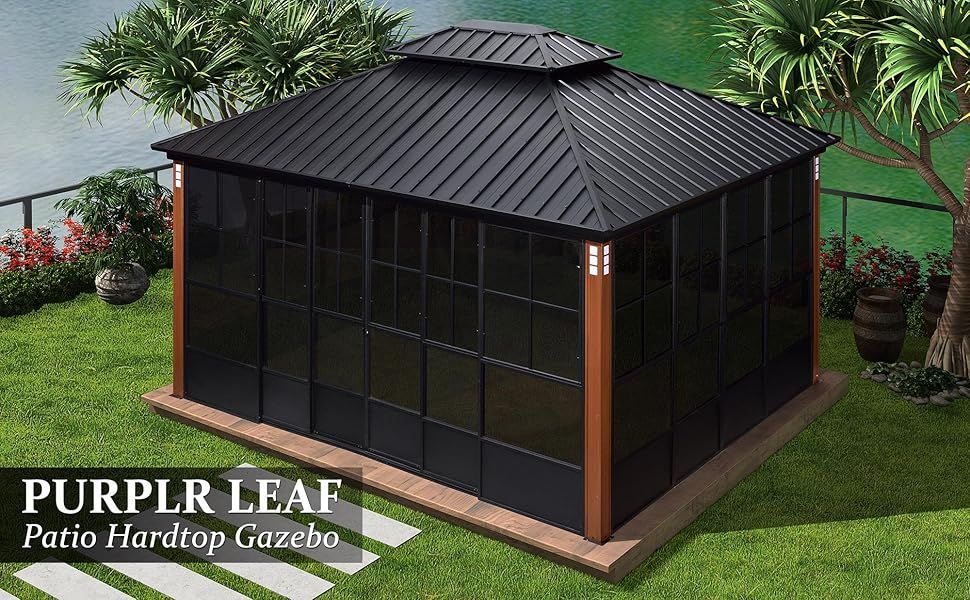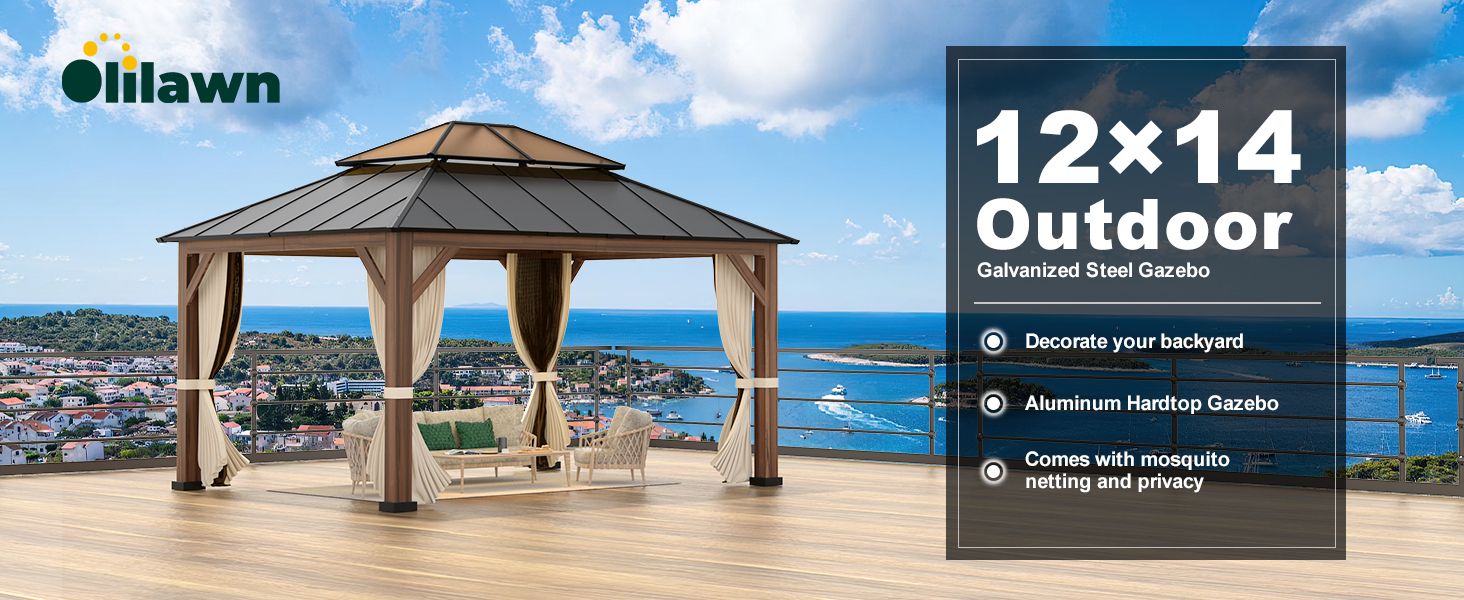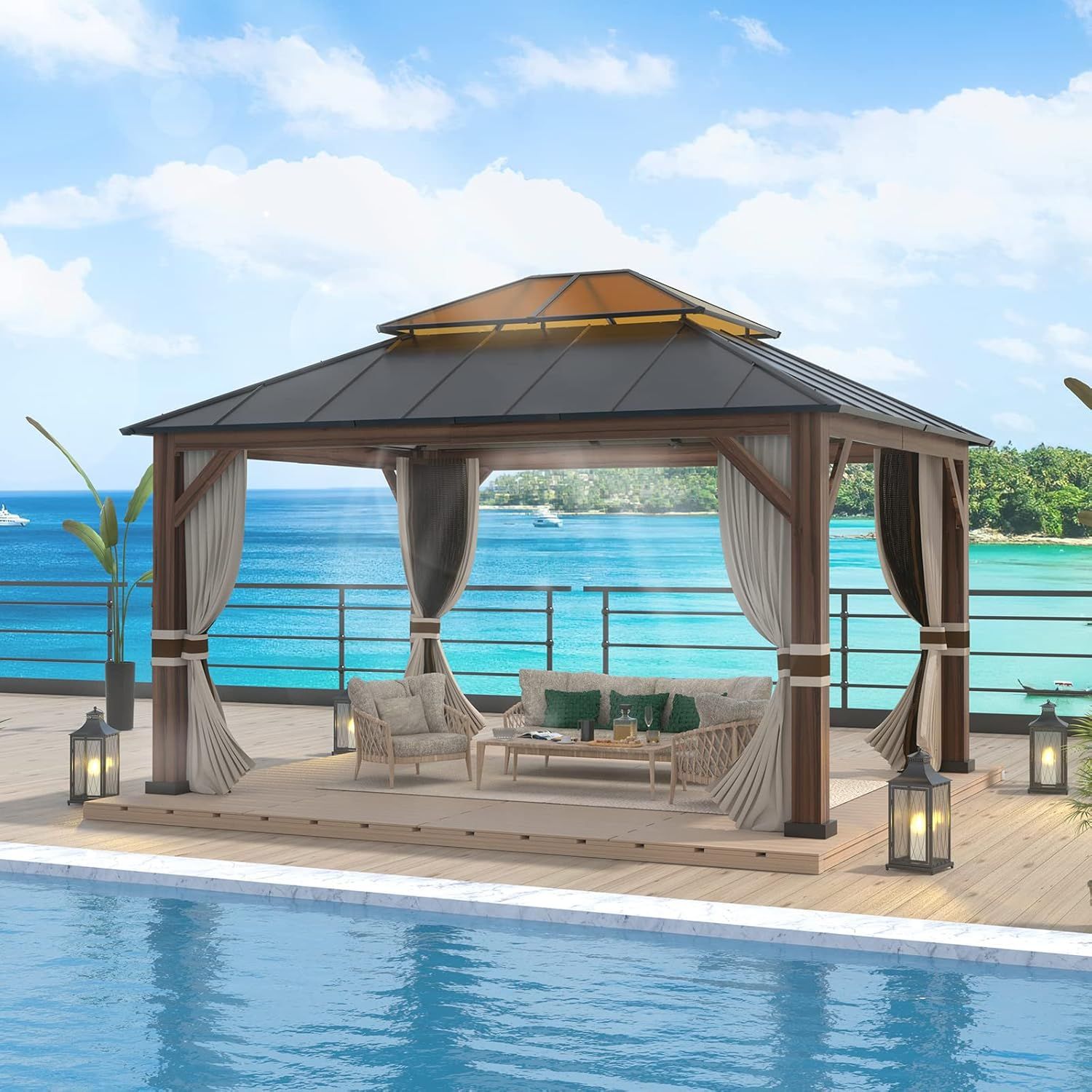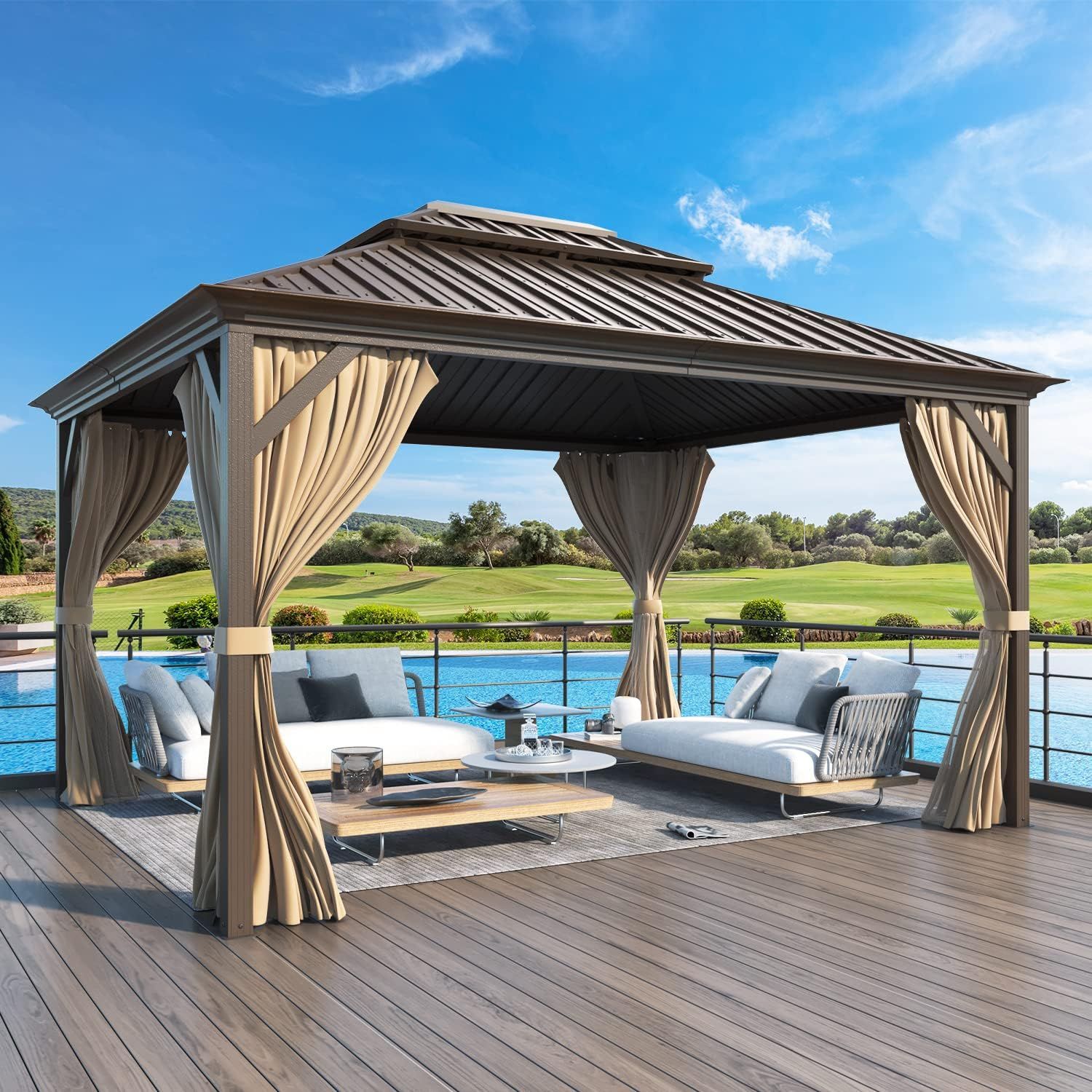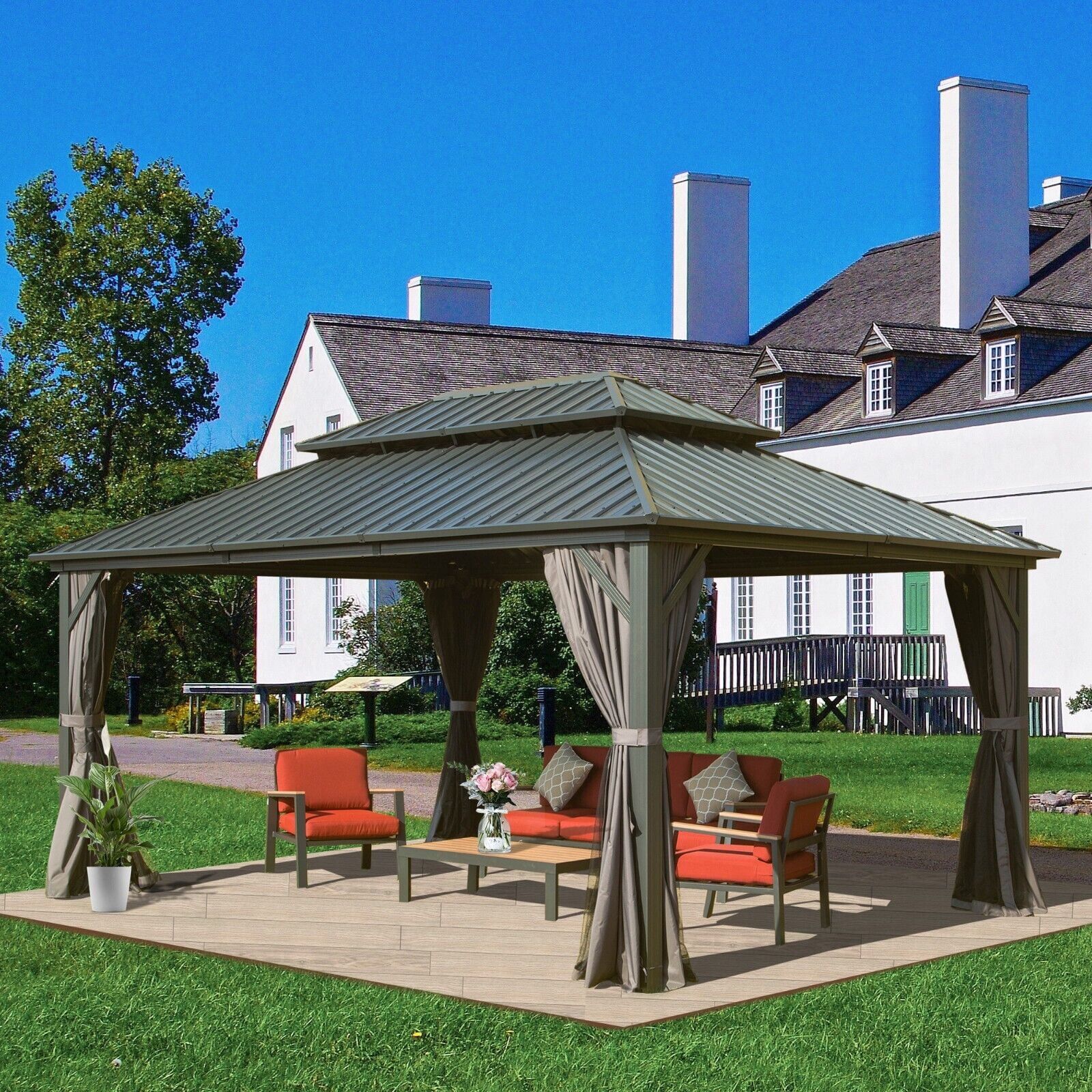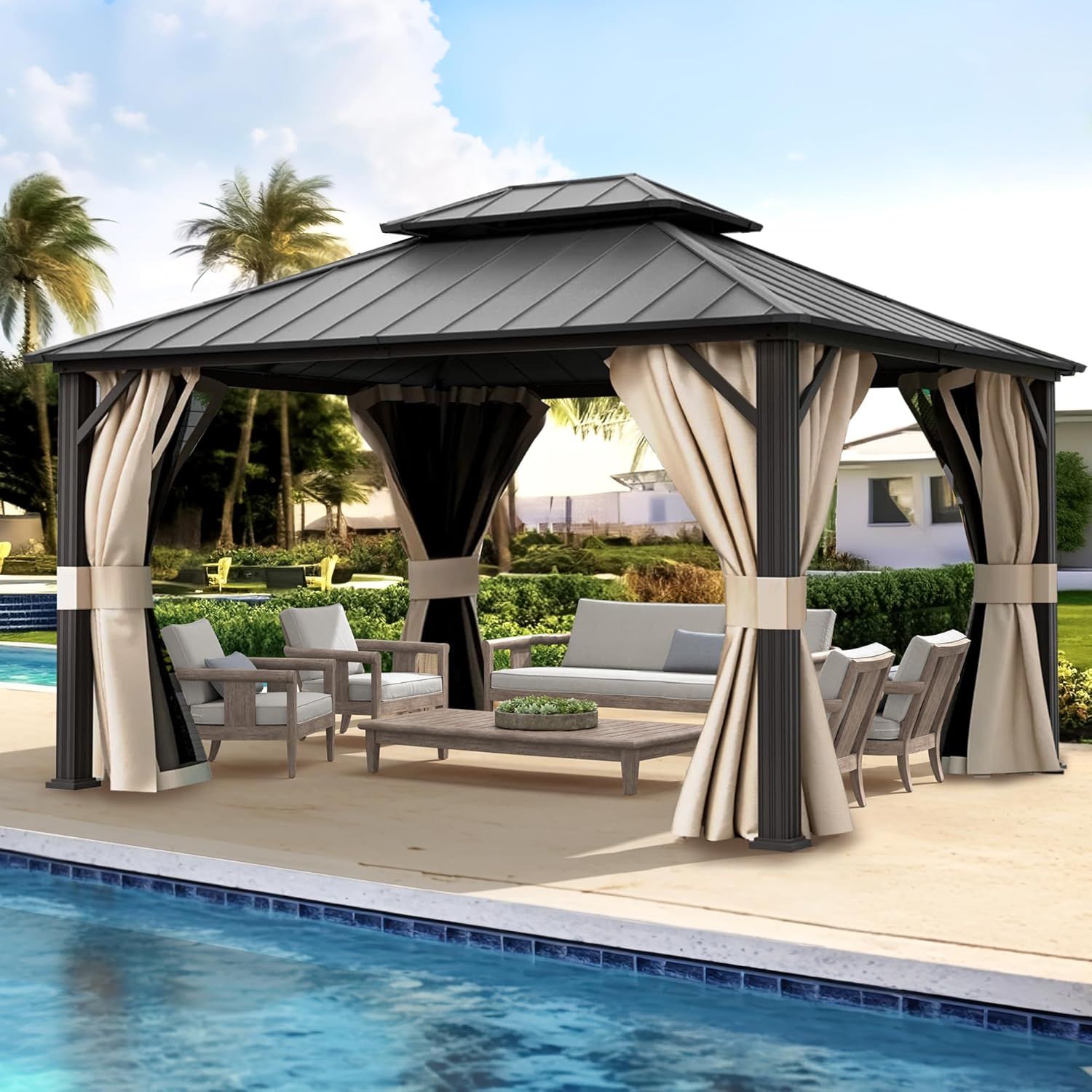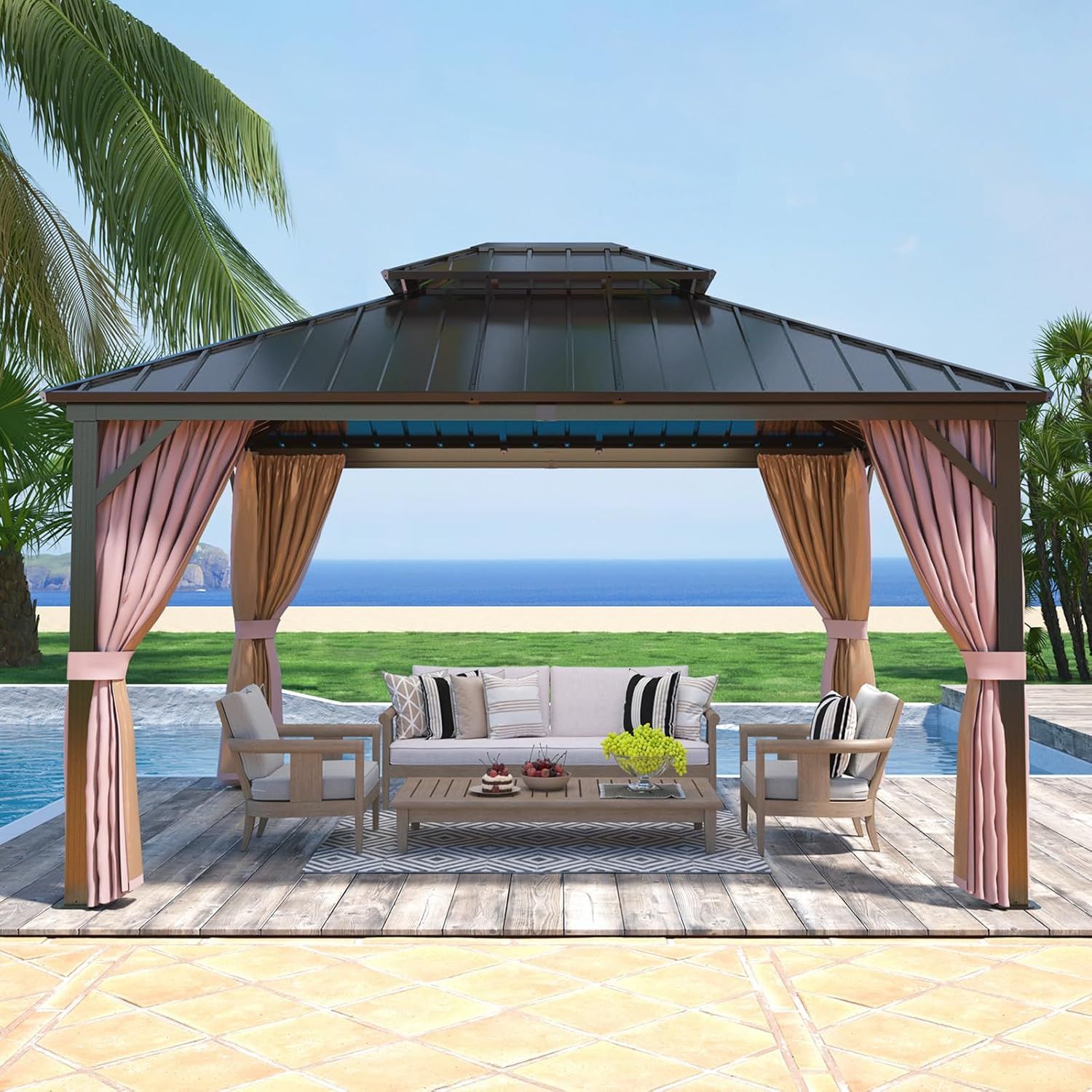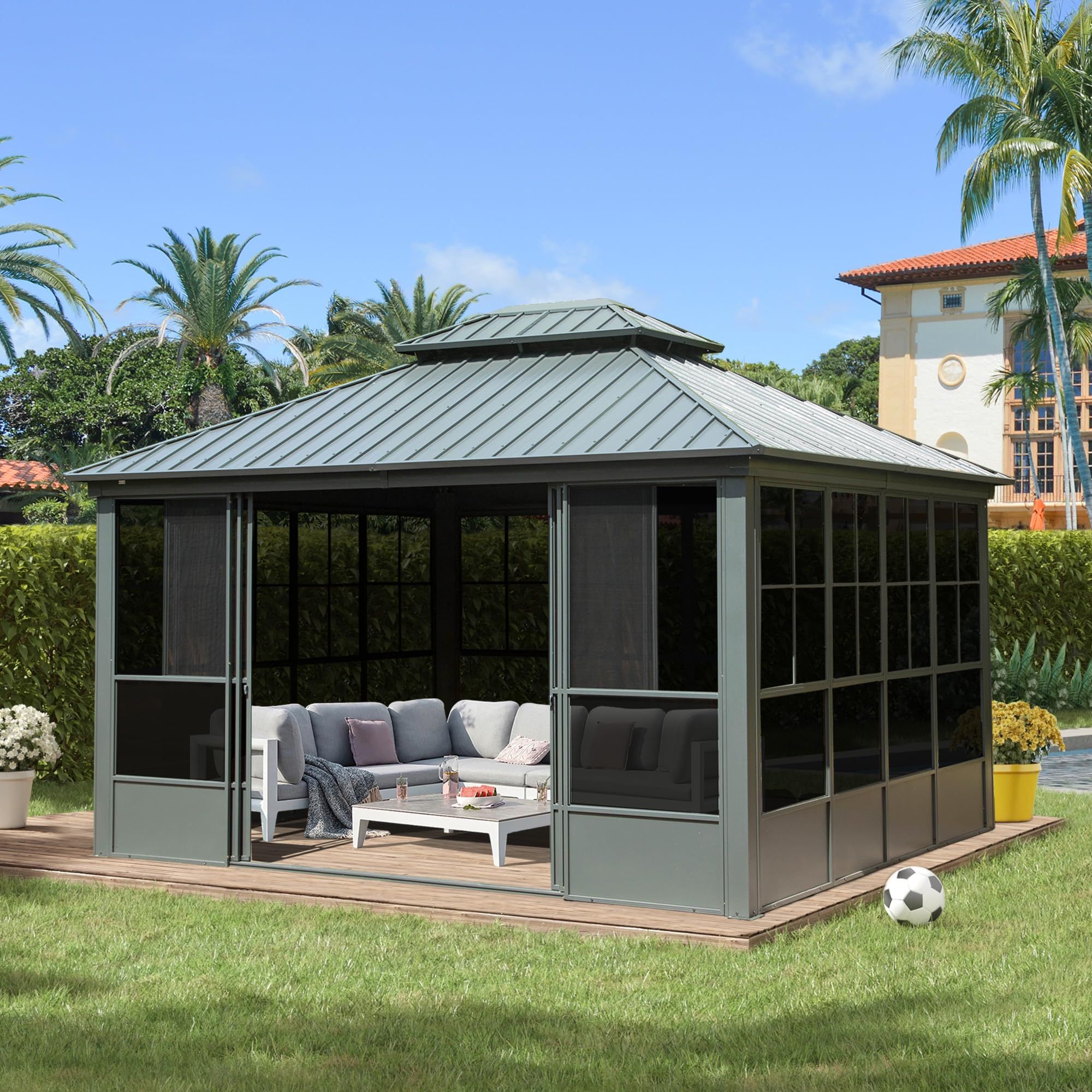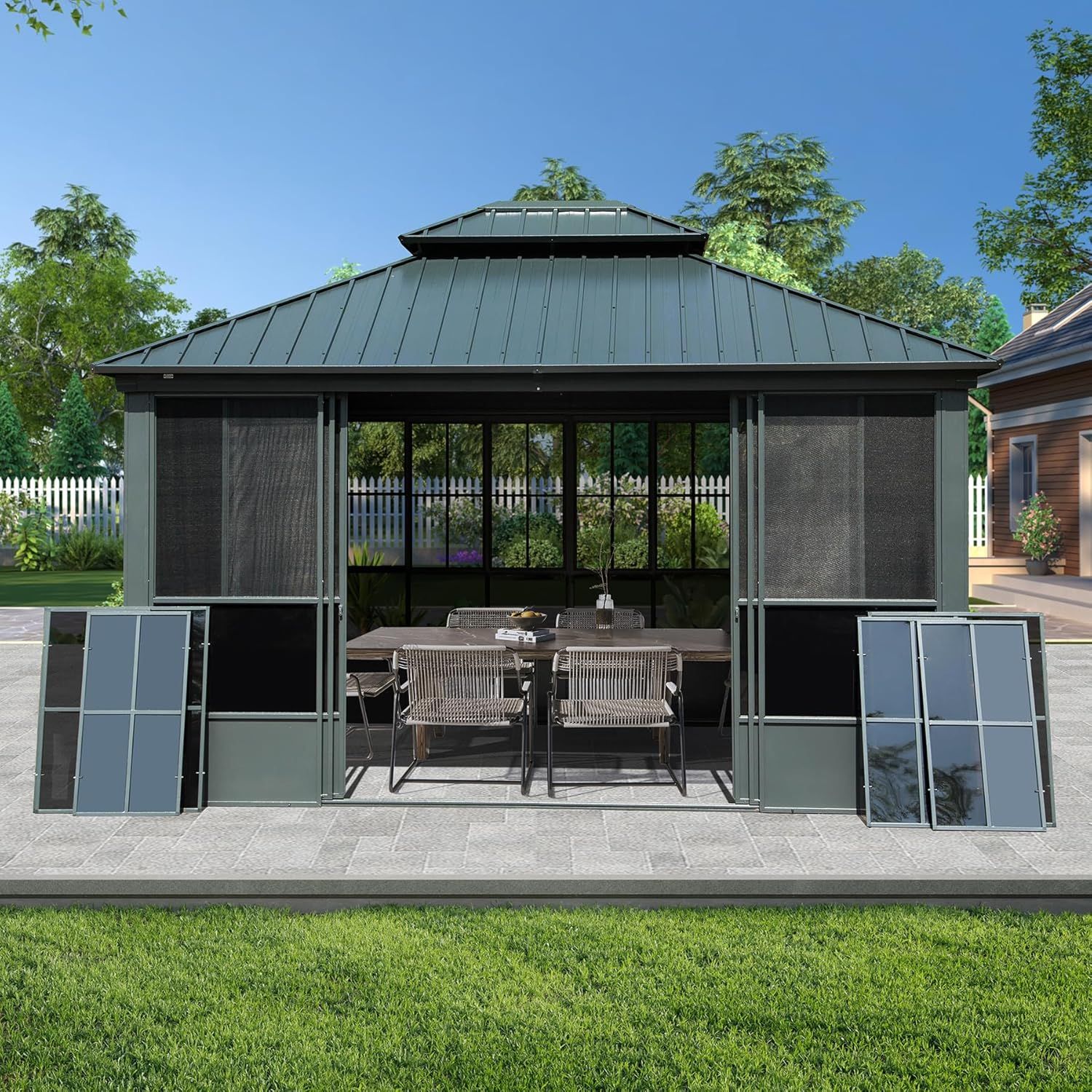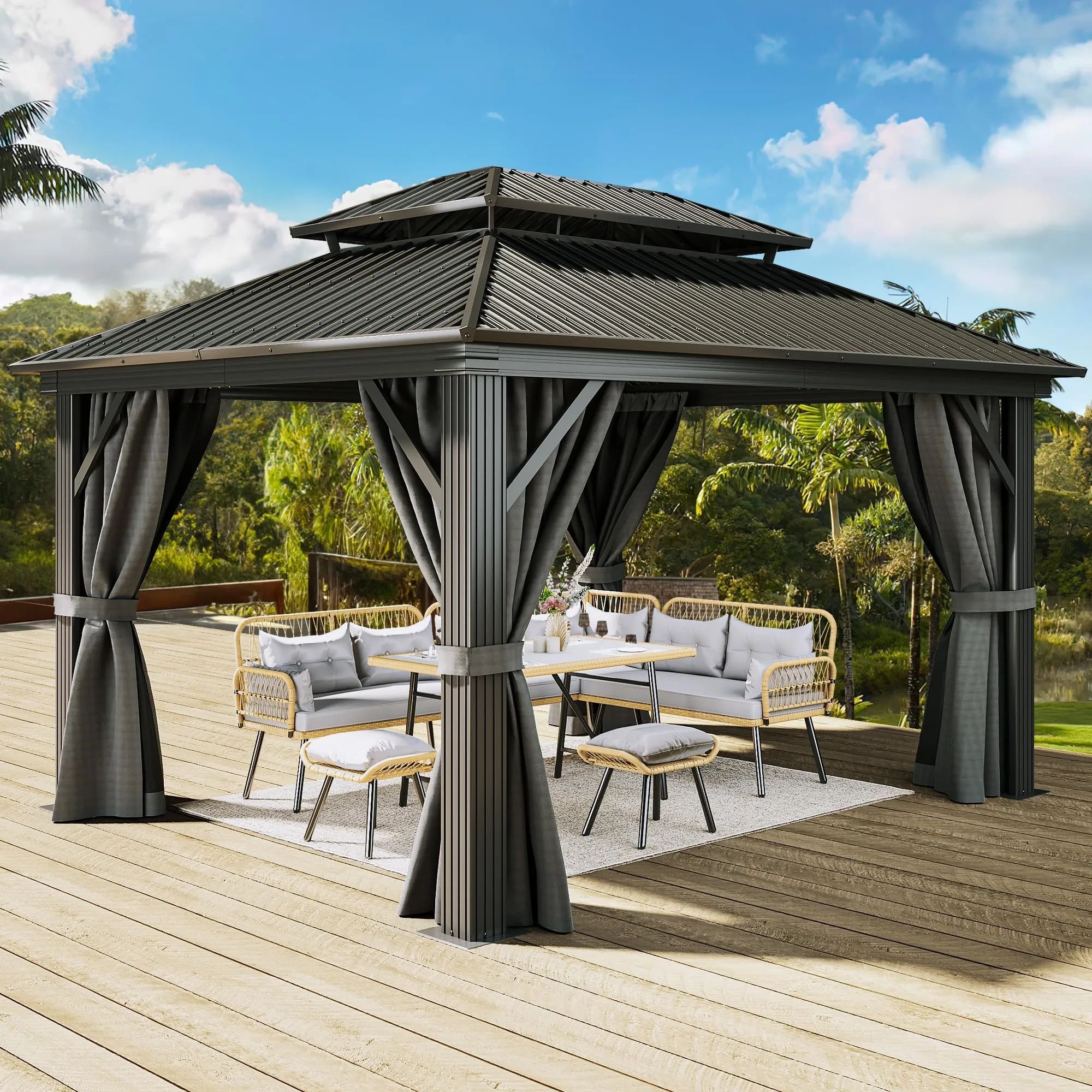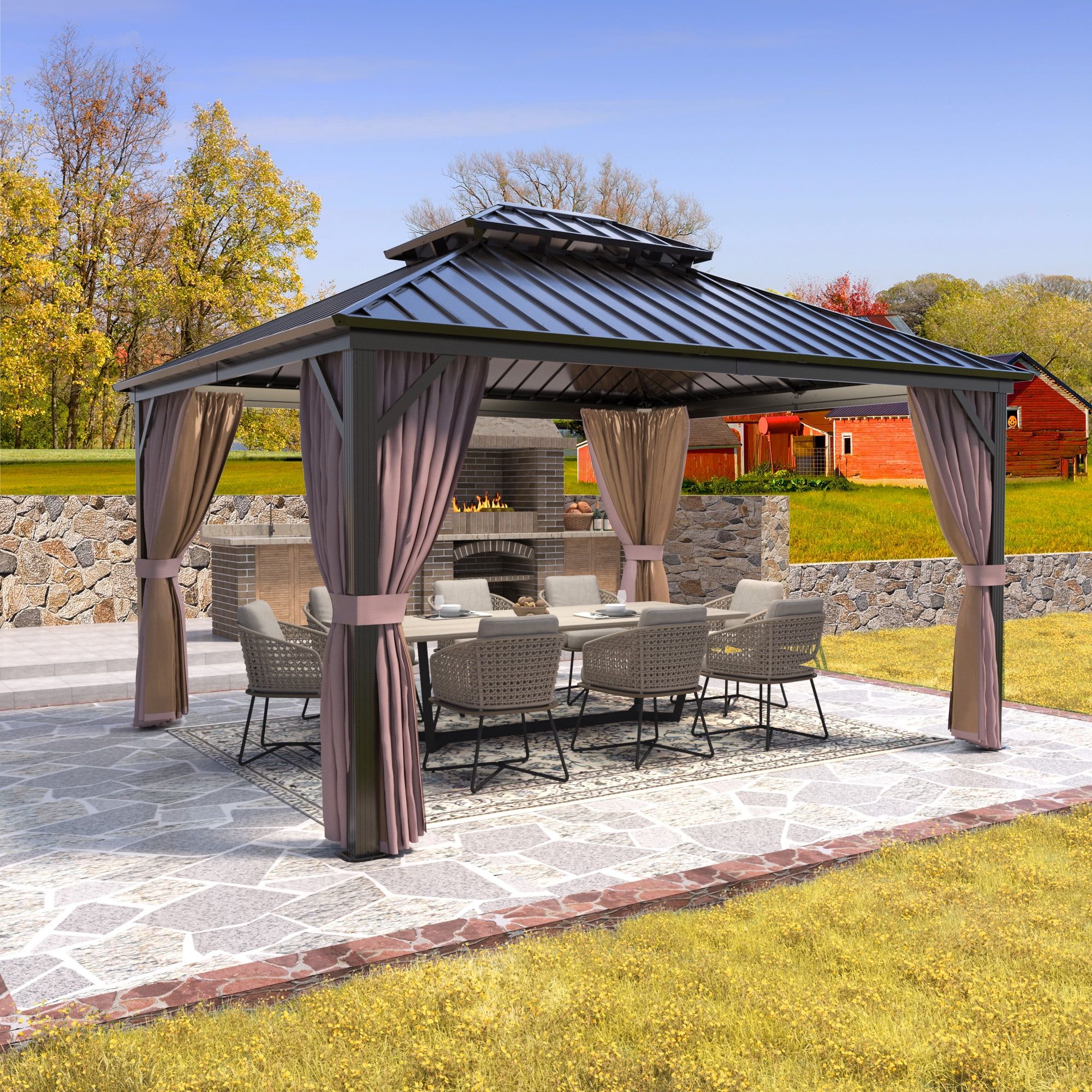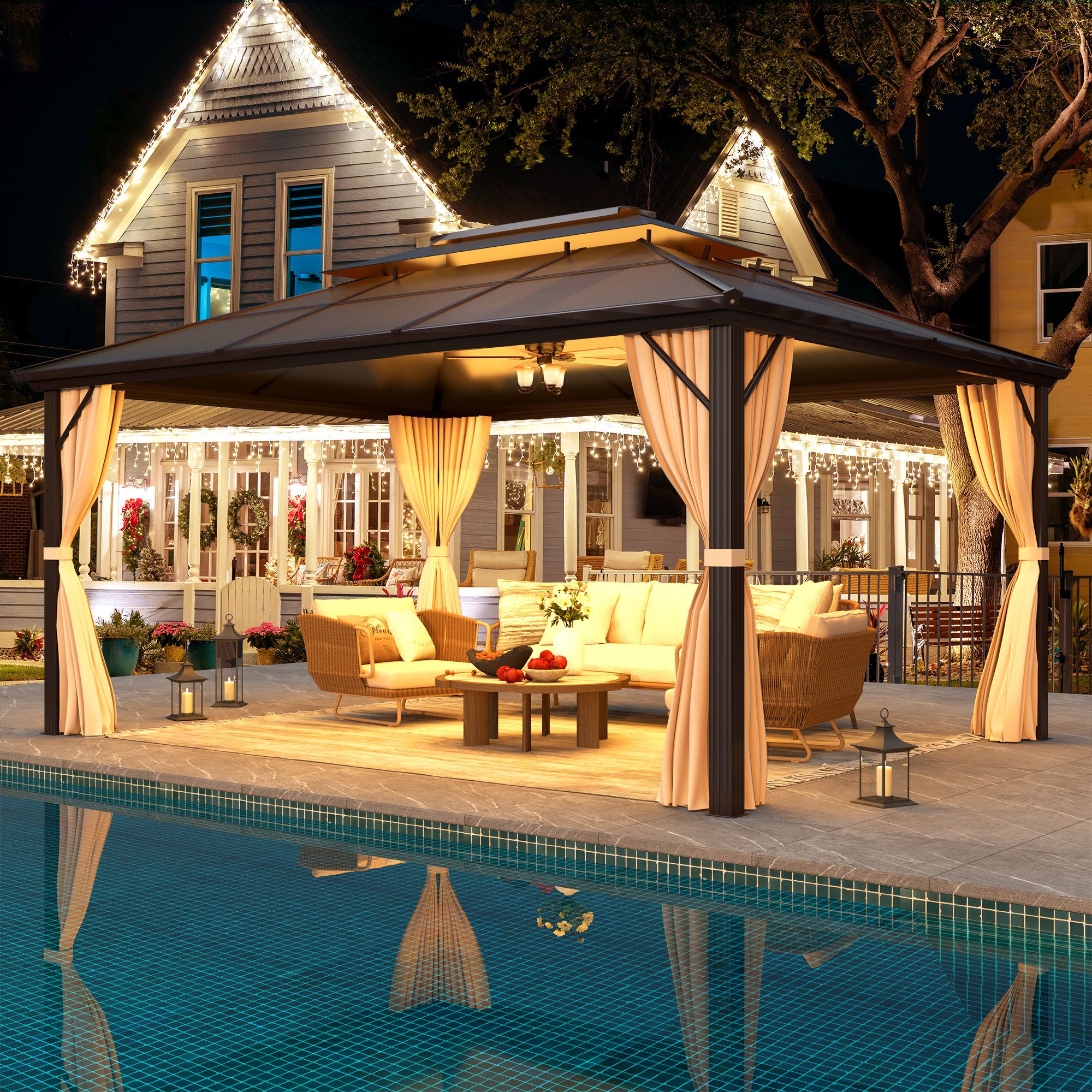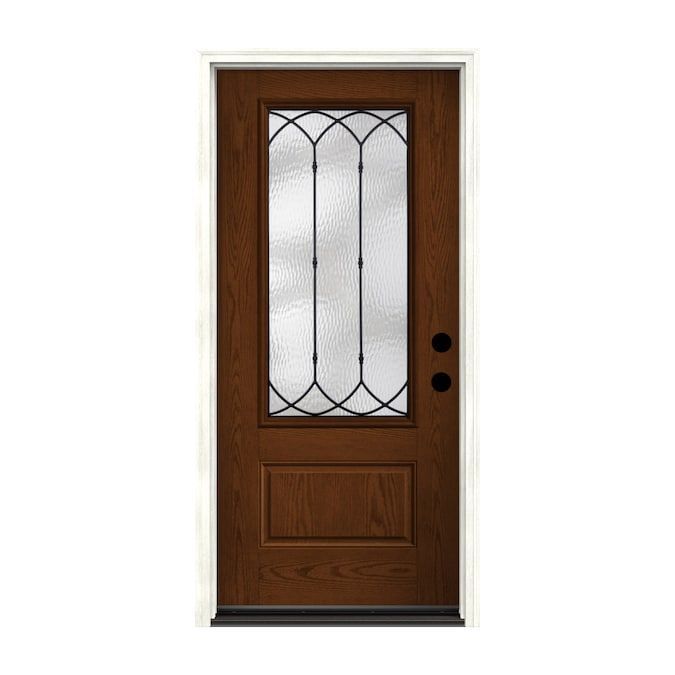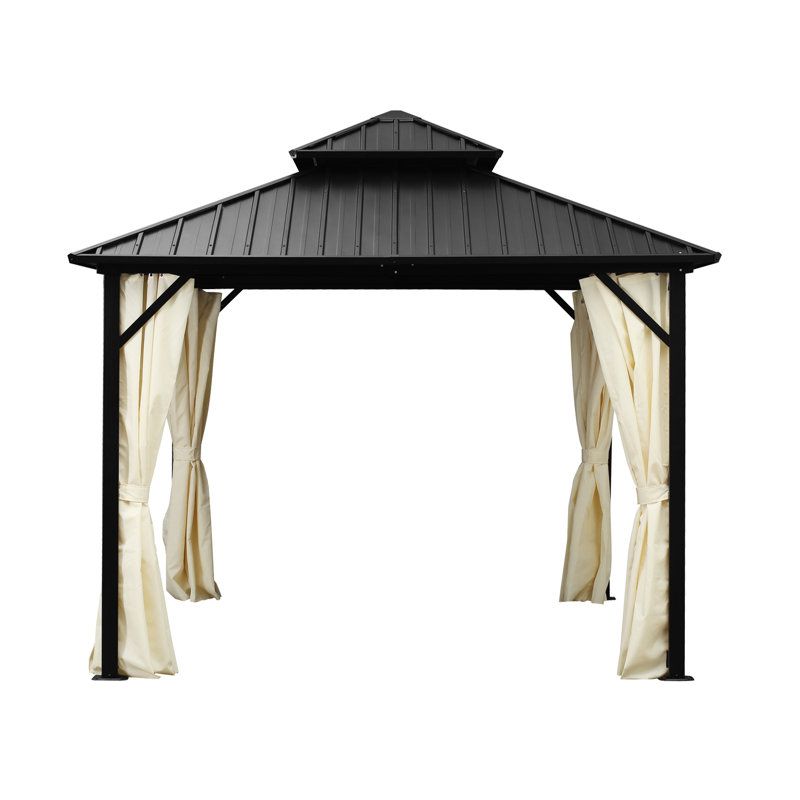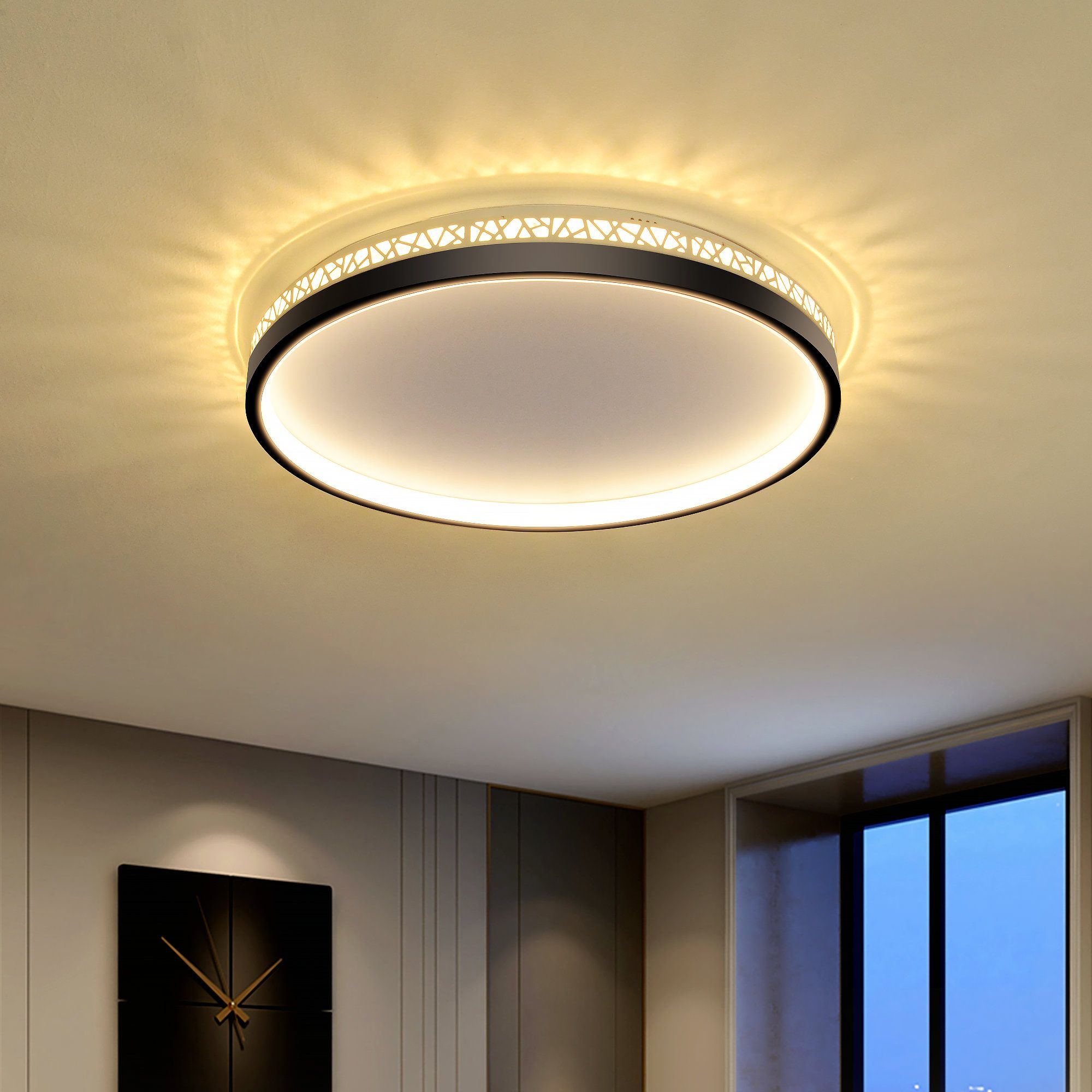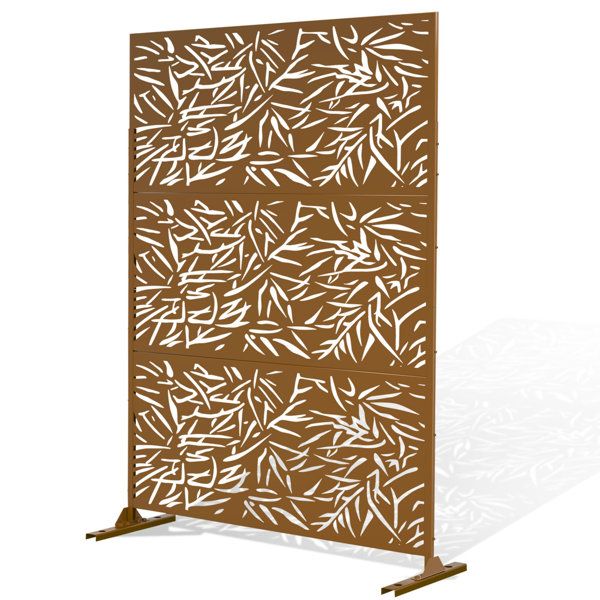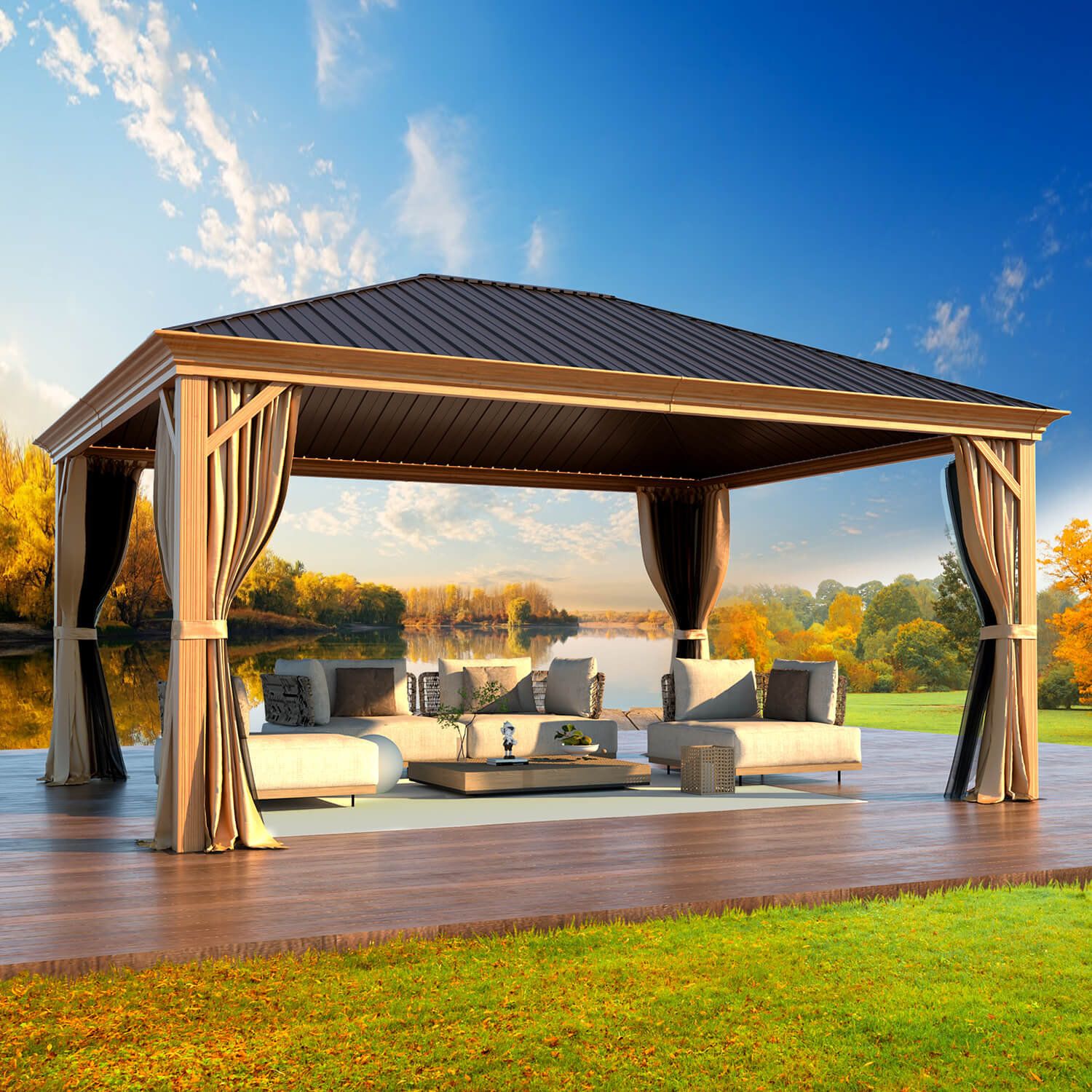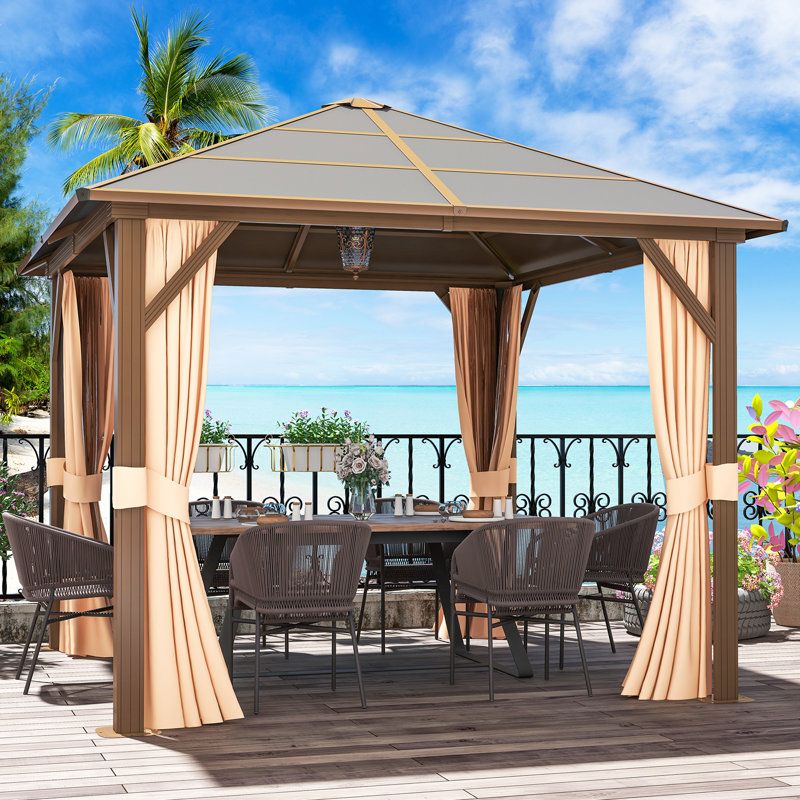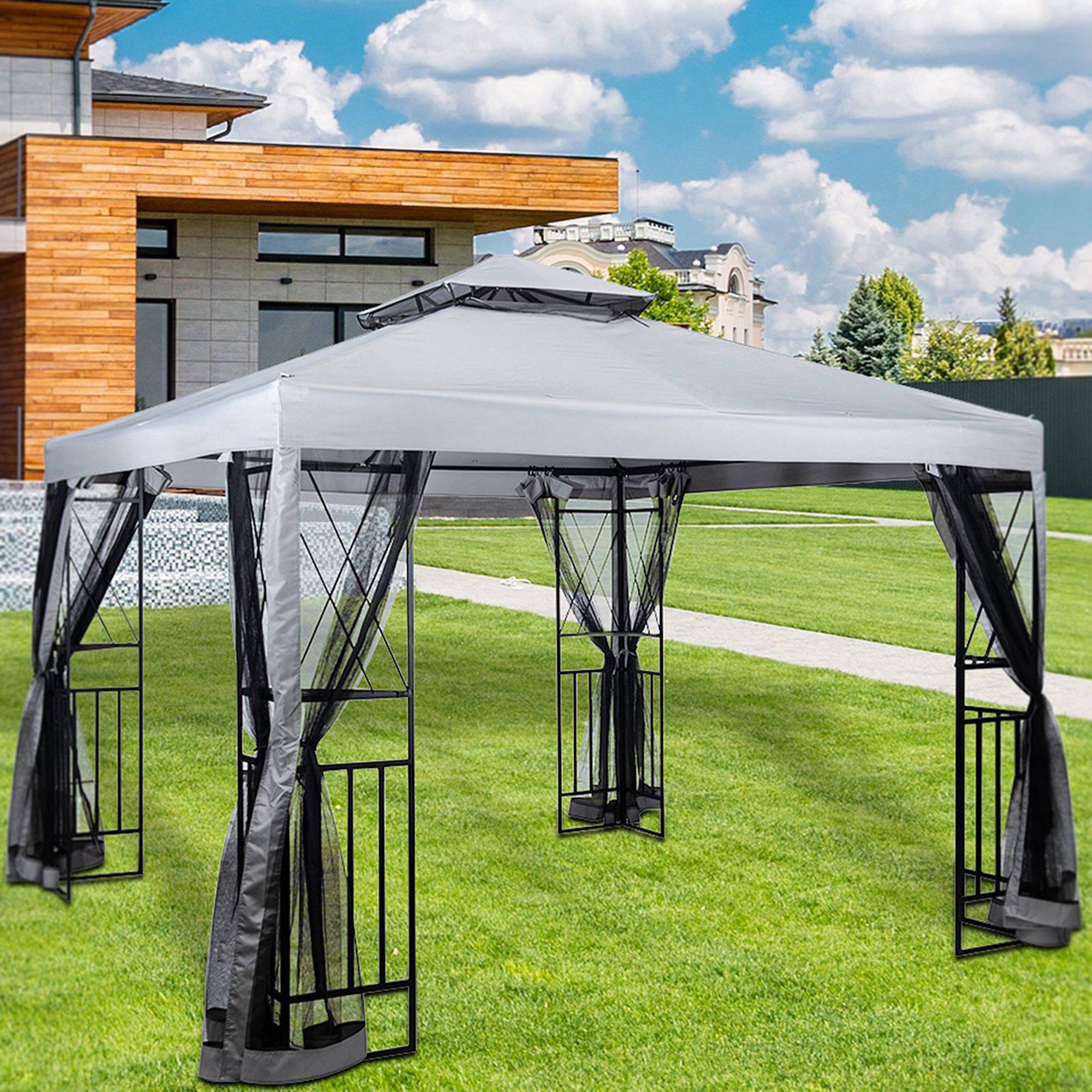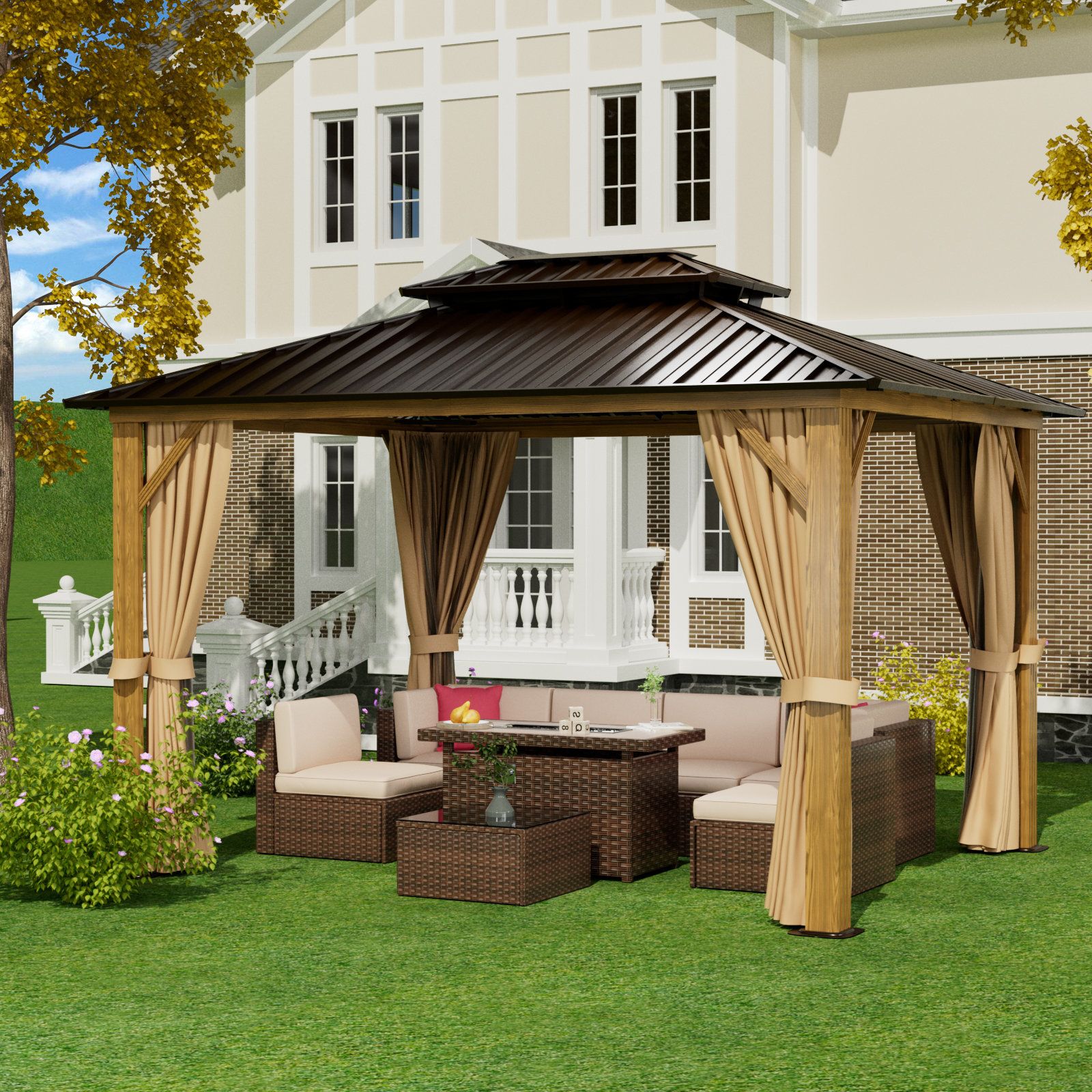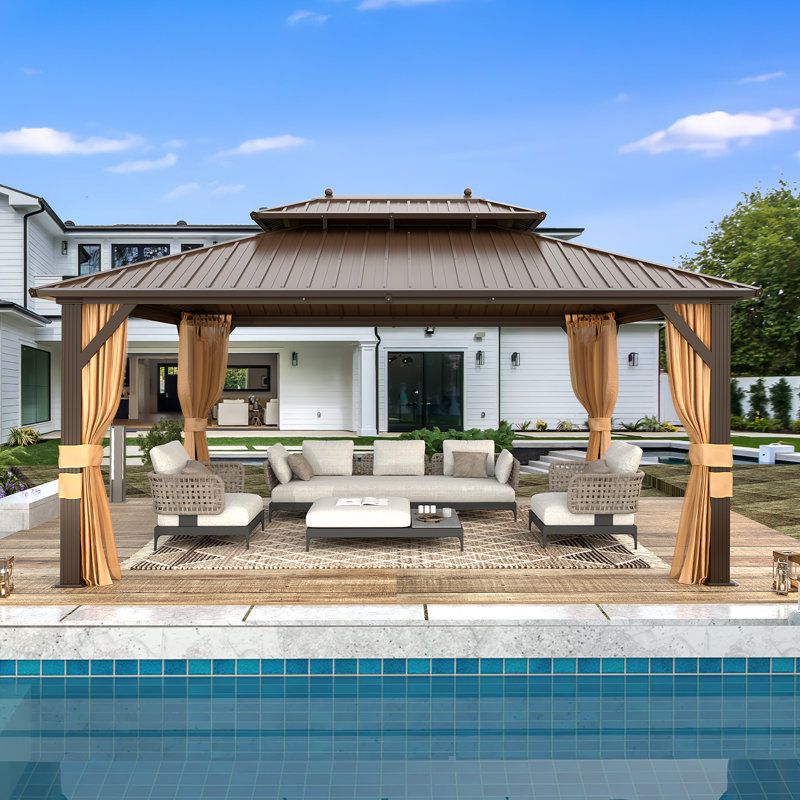Welcome, outdoor enthusiasts. If you’re dreaming of creating a beautiful, functional space in your yard, a 12×14 gazebo might be the perfect solution. This size offers a generous area for entertaining, relaxing, or simply enjoying nature. But with so many options out there, choosing the right gazebo can feel overwhelming. Don’t worry, that’s where I come in. This guide will walk you through the different materials and designs, helping you make an informed decision and build the backyard escape of your dreams.
A 12×14 gazebo is more than just a structure; it’s an extension of your living space. It’s a spot to host summer barbecues, enjoy quiet evenings with a book, or simply unwind after a long day. But before you start picturing yourself under the shade, you need to consider a few key factors. The material of your gazebo impacts its durability, aesthetics, and maintenance needs. The design will influence the overall feel and functionality of your outdoor haven. Let’s dive in, and explore the options, shall we?
Material Matters: Wood vs. Metal vs. Vinyl
The material of your gazebo is the foundation of its longevity and beauty. Let’s break down the most common choices:
Wood: Wood gazebos offer a classic, warm aesthetic. Cedar and redwood are popular choices because they’re naturally resistant to rot and insects. However, wood requires regular maintenance, including staining or painting, to protect it from the elements. Think about it like this, you’ll need to give it some TLC to keep it looking good.
Metal (Aluminum and Steel): Metal gazebos, particularly those made of aluminum, are known for their durability and low-maintenance requirements. Aluminum is rust-resistant and lightweight, making it a good choice for areas with high winds. Steel gazebos are incredibly sturdy but might need rust protection. They often come with a powder-coated finish for added protection and style.
Vinyl: Vinyl gazebos offer a virtually maintenance-free experience. They are resistant to rot, insects, and fading. Vinyl typically comes in a variety of colors and styles, and it’s relatively easy to clean. However, the initial cost may be a bit higher than wood or metal.
Consider your climate and lifestyle when choosing a material. Do you live in a rainy environment? Then, aluminum or vinyl might be your best bet. Are you a DIY enthusiast who enjoys regular maintenance? Wood might be a good fit for you.
Design Decisions: Shape, Roof, and Features
Beyond the material, the design of your 12×14 gazebo dictates its functionality and style. Here’s what to consider:
Shape: Gazebos come in various shapes, including rectangular, square, and octagonal. A rectangular gazebo, like the 12×14, offers the most space for furniture placement and is often the easiest to integrate into a backyard layout. Square gazebos can look particularly charming, and octagonal ones often create a more open, inviting feel.
Roof: The roof style impacts the aesthetics and weather protection. Gable roofs (triangular) offer excellent snow and rain runoff. Hip roofs (sloping on all sides) are another common choice. Consider the prevailing weather conditions in your area when making your decision.
Features: Think about the extras. Do you want built-in seating? A privacy screen? A mosquito net? Consider adding electrical outlets for lighting and entertainment. These features can significantly enhance your gazebo’s usability.
Budgeting for Your Gazebo: Costs to Expect
The price of a 12×14 gazebo varies widely based on the material, design, and features. Generally:
Wood Gazebos: These can range from mid-range to high-end, depending on the type of wood and the complexity of the design. Expect to spend anywhere from a few thousand dollars to several thousand.
Metal Gazebos: Aluminum gazebos are often found at a more budget-friendly price point than wood, while steel can be slightly more expensive. Prices can range from several hundred dollars to a few thousand.
Vinyl Gazebos: These usually fall in the mid-range to high-end price range, similar to wood. The cost will vary depending on the design and features.
Remember to factor in the cost of installation, especially if you’re not a DIY pro. Don’t forget the cost of any additional features you want, such as lighting, and furniture. Shop around and compare prices from different retailers and manufacturers.
Installation and Assembly: DIY or Professional?
Deciding whether to install your gazebo yourself or hire a professional is a crucial step. Here’s a breakdown:
DIY: If you’re handy and enjoy a challenge, a DIY installation can save you money. Most gazebos come with detailed instructions, and many online resources offer helpful videos. However, you’ll need to have the right tools and enough time to complete the project.
Professional Installation: Hiring a professional ensures proper installation and can save you time and stress. It’s particularly recommended for complex designs or if you’re not comfortable with construction. Get quotes from multiple contractors to compare pricing. Be sure to check references and read reviews before making a decision.
Consider the complexity of the gazebo and your own skill level when making your decision. Safety first, always.
Maintenance and Upkeep: Keeping Your Gazebo in Tip-Top Shape
Proper maintenance will extend the life of your gazebo and keep it looking its best.
Wood: Regularly inspect your wood gazebo for signs of rot, insect damage, or peeling paint or stain. Re-stain or repaint as needed, typically every few years.
Metal: Periodically clean your metal gazebo with soap and water to remove dirt and debris. Check for any rust and address it promptly.
Vinyl: Vinyl gazebos require minimal maintenance. Simply clean them with soap and water as needed.
Regardless of the material, clean your gazebo regularly to prevent the buildup of dirt and mildew. This will keep it looking beautiful for years to come.
Real-World Examples and Inspiration
Let’s look at some real-world examples to spark your imagination:
Rustic Retreat: Imagine a cedar gazebo with a gabled roof, adorned with string lights and comfortable, weathered furniture. Add a fire pit nearby for those cozy evenings.
Modern Oasis: Picture an aluminum gazebo with clean lines, a hip roof, and built-in seating. Add some sleek outdoor furniture and a contemporary water feature.
Family Fun Zone: Envision a vinyl gazebo with a mosquito net and a dining table. Add a grill and some comfortable seating for family gatherings.
Browse online for inspiration. Look at pictures of gazebos in different styles and settings to get ideas for your own backyard.
Choosing the right 12×14 gazebo is a significant investment in your outdoor living space. By carefully considering the material, design, and features, you can create a beautiful and functional haven that you and your loved ones will enjoy for years to come. Remember to prioritize your needs, budget, and lifestyle. Do your research, compare options, and don’t be afraid to get creative. With a little planning, you can transform your backyard into an outdoor sanctuary, a place to relax, entertain, and create lasting memories. I hope this guide has helped you. Now, go forth and build your dream gazebo. Good luck, and enjoy the process.
